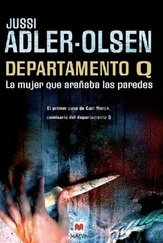The maternity ward was separated from the intensive-care ward by a small corridor in which there was a single pay phone. There were also two waiting rooms, one with a painted shingle reading DADS, the other with a bronze plaque, MEDITATION ROOM. “Dads” had a television set. “Meditation Room” had two burners and a coffee pot. The families of the patients wandered freely between them, for coffee or conversation or, at crowded hours, space. A senile friend of an intensive-care patient kept calling in, at all hours, on the pay phone. He wasn’t, it turned out, even a close friend. His persistence and his desperation were such that if we did not pick up the phone and talk to him sometimes, he would call the patient’s family or even the nurses in the ward, direct. Since everyone was always bringing chocolates to the nurses in intensive care, the doctors coming out of there were always chewing something.
“Of course I haven’t confused you with somebody else. Either it was you, or I made it up.”
The operative thing about the parties was that everyone who was asked did actually go to them and that the food and drink were of an awfulness, and also scarcity, that would embarrass New York dropouts in a loft. The food was always served so late that the hard liquor, such as it was, had run out. The dishes that were meant to be hot were never quite as warm as those that were meant to be chilled. There were not only, for the intrepid, no seconds of anything, there was not enough to go around. This meant that everyone — ambassadors, actresses, bishops, fashionable congressmen, writers, professors and civic-minded nuns — pushed, quite violently pushed, in the direction of the food. When the worst was over, the hostesses were, for some reason, always overwhelmed with compliments. They accepted these graciously. Then, they would begin to marvel about how inexpensively it had all been put together, how little bother or money it had cost. They expected the guests to marvel over this with them, and the guests did marvel. All of us.
What we were doing in Washington was working for a House select committee on private and institutional corruption. It changes its name every twelve years or so, but that’s what it is. At the staff offices, we had jobs as consultants, on a temporary basis, at a hundred dollars a day. We were paid thirty-five dollars more, for living expenses, on days we were actually down there, plus fares to and from LaGuardia, O’Hare, or wherever we were from. A pretty town, Washington, not too large. None of us had ever spent much time there before. At dawn, the joggers in sweat suits would be out, whatever the weather, as would the senator and his procurer, in their sports car with the top down; joggers, senator, procurer, all pale and hungover, would wave. On Mondays, Tuesdays and Wednesdays, our people worked straight through the night. Thirteen secretaries, all night, on high stools in a warehouse, assembling notebooks. “Page 32, Statement 28, Tab 28.2,” the head secretary would call out, like a croupier. Each secretary, with three notebooks on a high table before her, would put a Xeroxed loose-leaf page from the stacks on the floor beside her in all three. What they worked on then, these secretaries, calmly, cheerfully, with their smoker’s laugh and their smoker’s cough, were consoles. They sat like E. Power Biggs at their keyboards, typing words that lit up in neon, at each separate console, on a sort of TV screen. People would rush in and dictate changes in the neon paragraphs. When the page on the screen was edited and complete, the secretary would push a button. While she drank coffee, and we all stood there, drinking coffee, too, and watching, the screen would activate the typewriter and the keys would type, one line from left to right, the next from right to left, in alternation to the bottom of the page. For six months, the fact that the machines could type every other line from right to left, thereby saving the time that would be occupied by returning to the left-hand margin, fascinated everybody. When the neon had finished dictating its last line, the secretary would blank it out, erase the machine’s memory of it, and begin another page. By shortly after ten a.m., most of the town’s pallor is gone. Most committees are in session. The tired, driven bureaucrats of the night have ceded the place anyway to the men who are, at least nominally, in power; and these, communing with their hometowns or with the night officers at the remotest embassies, are busy exercising their prerogatives.
A much more gentle town, Washington, certainly, than New York, pretty in its flowers and the scale of its houses, although every street in the last years is being torn up. At the fine hotels, the Hay-Adams, the Sheraton, the Madison, people often sleep to the sound of iron scraping stone and jackhammers on macadam, whenever, for some reason, the work goes on in three shifts, overnight. At the cheaper hotels, like the Quality Inn near the station, the hotel doors, the outside doors, after midnight, are actually locked; people have to pound on the glass from the sidewalks to wake the night porters, who let them back into their hotels. Greg’s aunt was for years in love with an exiled African leader, who, being Catholic and already married, could not marry her. This tragic aunt had an equally tragic but more enterprising mother, very old, who had been in love with Russia — all of it. At the time of the Revolution, this lady’s thought had been for the English governesses of White Russian children. She had actually commandeered a train. With a confidence, for which she could subsequently find no rational grounds, that every English governess would go to her local railroad station and wait there, the lady took that train all across Russia, picking up English governesses, who were in fact waiting, along the way. Greg himself was on a story in Baghdad, at a time of public hangings and of violent, berserk crowds. At the most expensive hotel, rioters had surged through the lobbies and down corridors, screaming for vengeance, or, at least, for death. Rioters pounded on all the bedroom doors. Anyone who answered to the knock was murdered. Anyone who didn’t answer, whether out of fear, or sleepiness, or a habit of not answering when no bellboy had been summoned, was left alone. The aspect of a closed door seemed to check the crowd’s momentum; it passed on.
“Tie tac toe, two out of three?” the four-year-old said, sitting down beside us. Then he drew five bars across and four bars down. Jim redrew it for him. The boy considered. He said, “I see.”
The judge had quite a number of generous impulses. He gave himself full credit for each of them. He did not carry any of them out. As a result, he was often puzzled and aggrieved by the demands the people closest to him seemed to make upon him. Though he would be the last man in the world to ask for thanks, he could not understand why they were, on the whole, so damned ungrateful. His daughter, who was overweight, but for whom he felt considerable affection, seemed actually to fear him. When he found her reading the latest diet book, or doing calorie computations, he would point out to her that she was deluding herself: the problem was that she simply ate too much and exercised too little. When she avoided his eyes and, muttering denials, left the room, he would tell himself that she was at a difficult age. His moral vanity was great. When it was touched, he became dangerous. It is not at all uncommon for someone to arrive at a scene of brutality or injustice and, with a sympathetic murmur or heroic flourish, attack the victim. It happens all the time. It underlies the columns, for example, of Dr. Franzblau. But the particular consequence of his moral vanity was that when he did people an injury, he never forgave them. Never again.
The whole courtroom is filled with judges. Each one presides. Perhaps there will be a defendant today, although we are not sure. Scholars and intellectuals make bad jurors, I believe. Their attention span is short. They get bored with the point. They overvalue the original. A hunting dog is not an intellectual. There is a mystery in lawyers’ expressions. False and misleading statements, for instance. Always together. False and misleading. Can’t understand what the “misleading” is doing there. It’s always there. And I’ve found, I think, the strongest “or” in language anywhere. It’s the lawyers’ phrase: as he then well knew or should have known. Well knew or should have known. The strongest or.
Читать дальше












